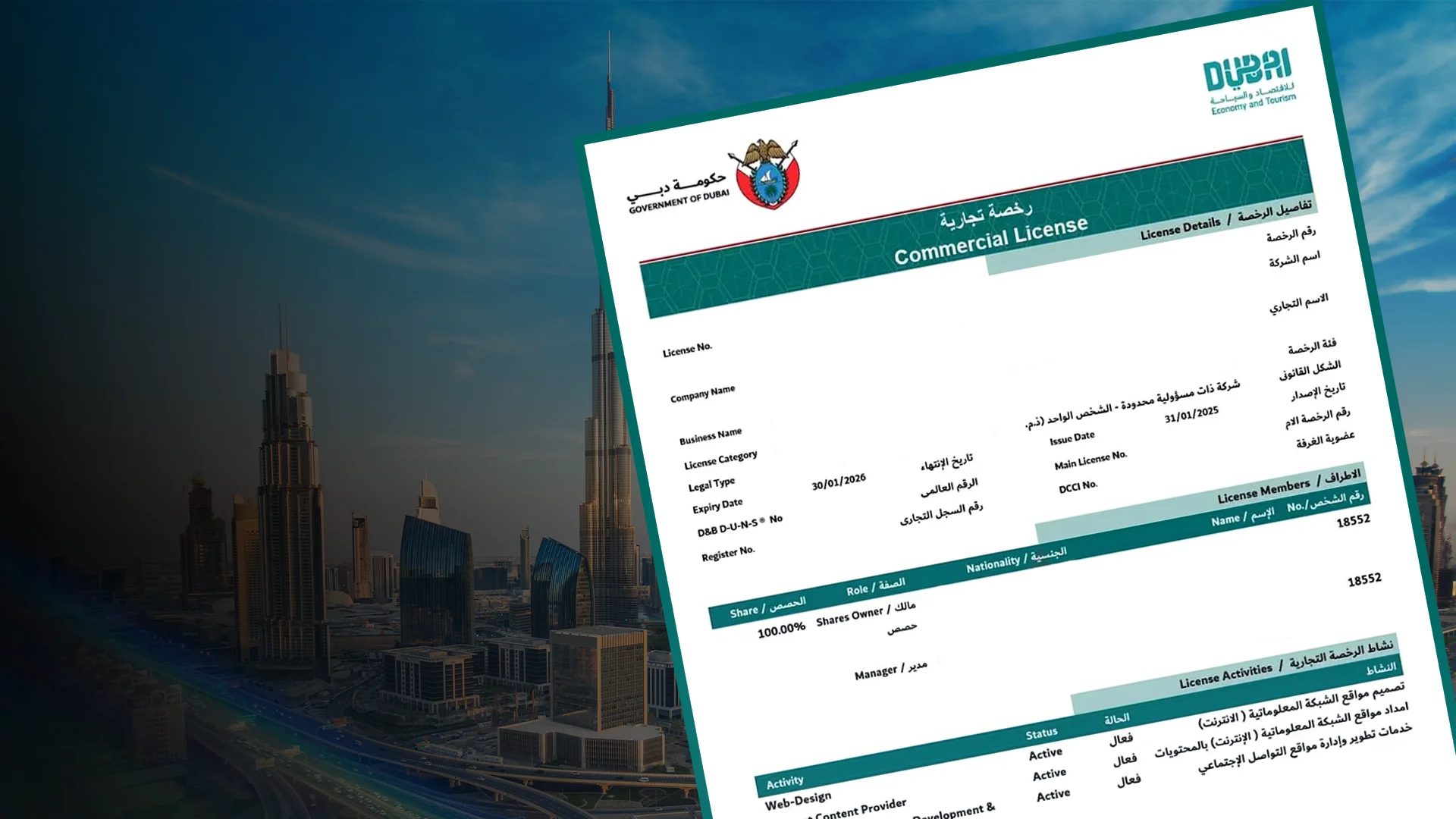
Topic Summary
1. Emirates ID: Your Essential Identification Document
The Emirates ID is a mandatory identification card issued by the Federal Authority for Identity and Citizenship (ICA). For Meydan Free Zone license holders, it serves as proof of identity within the UAE and is necessary for accessing government services, signing official documents, and conducting financial transactions.
2. UAE Residency Visa: Legal Permission to Reside
The UAE Residency Visa provides legal authorisation for expatriates to live in the country. As a Meydan Free Zone license holder, obtaining this visa is crucial, as it legitimises your stay and allows you to sponsor dependents, open bank accounts, and secure business premises under the free zone regulations.
3. Application Process and Documentation Requirements
Applying for your Emirates ID and residency visa involves submitting biometric data and requisite documents such as your passport, tenancy contract, and medical fitness certificate. Meydan Free Zone often assists license holders through streamlined services to facilitate a smooth application experience.
4. Validity Period and Renewal Procedures
Both the Emirates ID and UAE Residency Visa are usually valid for one to three years, depending on the type of business license and visa category. Timely renewal is essential to maintain uninterrupted residency status and ensure compliance with UAE laws as a Meydan Free Zone entrepreneur.
5. Integration Benefits: Unlocking Full Access in the UAE
Possessing a valid Emirates ID and residency visa extends beyond legal compliance. These credentials enable Meydan Free Zone license holders to fully integrate into the UAE’s commercial ecosystem, including participating in government tenders, accessing health care, and enjoying various social benefits afforded to residents.
Stepping into one of the world’s biggest crossroads of commerce and culture means unlocking many incredible opportunities. If you’re thinking about moving to the UAE or starting a business, then there are two things you should know about: your Emirates ID and UAE Residency Visa. These are not just paperwork; but your gateway to becoming a recognised emirate resident, granting you access to everything the UAE has to offer.
This guide breaks it all down, showing you how these two essential documents go hand-in-hand, making your life in the UAE simple, smooth, and official.
The Link Between Emirates ID and UAE Residency Visa
The UAE has made the residency process a lot simpler. Before 2022, if you were a foreign resident, you’d need a residency visa sticker inside your passport. So, what changed? Your Emirates ID card is now your definitive proof of residency.
Your Emirates ID, issued by the Federal Authority for Identity, Citizenship, Customs & Port Security (ICP), now packs all the essential residency information onto one smart, secure card.
What does it do?
- Shows proof of identity and residency in the UAE
- Gives you digital access to government services
- You’ll need it to set up your bank account, secure a home, get a driver’s license and more.
Think of your residency visa as the foundation of your stay and your Emirates ID as your day-to-day pass. Now, they are linked in the same system, and you need both for a smooth sailing stay in the UAE.
Understanding the UAE Residence Visa Process Step-by-Step
Your UAE residence visa is more than just a legal requirement — it’s your gateway to life in the Emirates. With it, you can apply for your Emirates ID, open a bank account, lease property, and sponsor your family or partner to join you. You’ll also receive your Unified Identification Number (UID), which links your visa, immigration file, and Emirates ID records.
And when you launch your business with Meydan Free Zone, the visa process is built right into your setup journey.
Here are they ways you can obtain a residence visa in the UAE:
- By securing employment in the UAE
- Through sponsorship by a family member
- By launching your own company with Meydan Free Zone
- By investing in real estate
If you’re setting up through Meydan Free Zone, here’s how the process works:
Step 1: Apply for your business license through Meydan Free Zone — our team will initiate your visa application.
Step 2: Receive your entry permit digitally.
Step 3: Complete your medical fitness test and biometrics at an ICP-approved centre.
Step 4: Your residency visa is stamped in your passport and your legal status is confirmed.
Step 5: Your Emirates ID is printed and delivered to your registered address.
Remember, your Emirates ID and residence visa must both be renewed before they expire. If either one lapses, the other becomes invalid — so staying compliant is key.
How to Get Your Emirates ID and UAE Residence Visa
Before receiving your UAE residency visa and Emirates ID, you need to make sure you’re eligible under employment, business ownership, family sponsorship, property investment, or that you are entitled to a Golden Visa.
Once approved, there’ll be standard checks like identity and health clearances.
If you're wondering about costs, the 2-year residence visa cost through Meydan Free Zone could typically range from AED 3,750 to AED 5,000. This includes everything from your medical test to Emirates ID and visa stamping.
Connect with us to get a clear breakdown of your residence visa costs.
Essential Documents You’ll Need For Your UAE Residency Visa
To begin the process and navigate UAE residency visa requirements, you need to have the right documents prepped.
- Passport (valid for atleast 6 months)
- Passport picture (with a white background)
- Entry permit (if you’re applying from outside of UAE)
- Passed medical test certificate
- Valid trade license, employment contract or personal proof of individual sponsor.
- Emirates ID application form
Managing and Updating Your Emirates ID
The UAE government has unveiled next generation Emirates ID cards with security features like 3D images, facial recognition to embedded chips that store personal data.
The result?
Emirates ID cards are now more secure and multifunctional than ever.
- Renewals: UAE nationals can renew ID 1–6 months before expiry and expats must renew their ID once their visa is renewed. You’ll usually get a reminder SMS from ICP.
- Updates: If personal details change, the ICP must be notified within 30 days.
- Lost or damaged your ID? There’s no need to worry. Report to ICP Customer Happiness Centre where renewal fees start from AED 300.
In Conclusion
Whether you are building a company, relocating, or investing in real estate, your Emirates ID and residency visa connect you to the systems and services that make your life seamless here in Dubai.
And if you’re looking for an ideal business launchpad that grows with you, Meydan Free Zone offers a comprehensive ecosystem for you to get started. A fully digital, speedy solution to apply for your residency and business — all in one place.
FAQs
1. Can I apply for an Emirates ID without a UAE residency visa?
No, you can’t. The process of issuing an Emirates ID only begins once your UAE residency visa has been issued. What this ensures is that your ID is tied to a legal status, meaning that without an active visa, you cannot apply for an Emirates ID renewal.
2. How do I check the status of my Emirates ID?
For an Emirates ID status check online, the process is fairly simple. All you need to do is go to the ICP website and check on your Emirates ID status. Click on “ID Card Status,” and enter your Emirates ID number or application reference. You can now expect real-time updates on your application, covering approval, printing, and delivery timelines.
3. What is the validity period of an Emirates ID?
Your Emirates ID is valid for the same length as your residency visa. Research on the types of residency visas available in the UAE. Typically, for standard visa holders, this means 2-3 years, but Golden Visa holders receive up to 10 years. Once your visa reaches expiry or is cancelled, the Emirates ID becomes invalid too.
4. How do I renew my Emirates ID?
The process differs for UAE nationals and foreign residents. UAE nationals have the option of waiting 1 - 6 months before expiry and on the other hand, foreign residents are supposed to wait until their visa is renewed before renewing their Emirates ID. Usually, you’ll get a reminder as an SMS notification from ICP. There’s a 30-day grace period applicable here, and if the renewal is delayed, there will be a penalty.
5. What happens if I lose my Emirates ID?
There’s no problem. Just report it to your nearest ICP Customer Happiness Centre. Then, apply for a replacement. This generally costs around AED 300, plus a service fee. You’ll receive a card with the same validity as the previous one.
6. Can I update my personal details on an Emirates ID?
Yes. If details like your name, marital status, or others change, you need to inform the ICP within 30 days. Depending on the type of update required, a visit to an ICP office might be needed. Keep in mind that ensuring your Emirates ID is up to date is a significant part of compliance.
7. Can entrepreneurs in the UAE get a residency visa and an Emirates ID?
Yes, definitely. If you set up a company through a free zone like Meydan Free Zone, you are eligible to apply for a residency visa and an Emirates ID. Our process is 100% digital, and once your visa receives its approval, your Emirates ID will be issued and completely linked to your business status.































